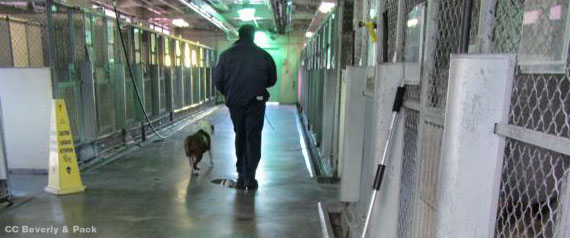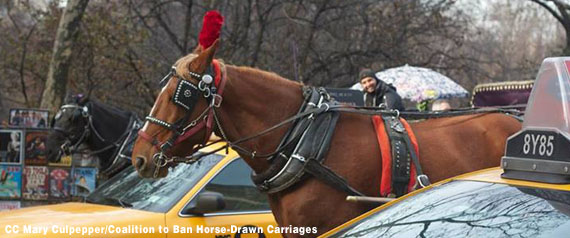
Information leaks have made such compelling local (Chris Christie) and global (Wikileaks) headlines in large part because of the culture of government secrecy they upend. There's little question that government agencies complicit in truly dangerous or cruel activities don't want us to know what they're up to. Public records laws like the Freedom of Information Act (FOIA) are intended to protect the rights of Americans by providing for more transparency in government. Access to information is crucial to protect animals -- because secrecy allows violations to continue. That is why the national nonprofit Animal Legal Defense Fund (ALDF) must take on so many cases where the government attempts to prevent full disclosure of public records.
This month, for example, ALDF filed a lawsuit under the Illinois Freedom of Information Act to obtain public records from the City of Chicago Animal Care and Control (CACC). This facility, which houses over 500 hundred animals, was investigated in December 2013 when 1,200 cats went unaccounted for; it has also been called out this month in media reports for its role in a recent stray dog attack in a suburban Chicago neighborhood. CACC's continual denial of public records requests (for more than a year and a half now) eviscerates both the spirit and the intent of the Freedom of Information Act. ALDF is asking the courts to order the facility to share these records, so we can ensure homeless animals receive the legal protections they deserve. In 2012, we filed similar public records requests, and successfully sued the Palm Springs Animal Shelter, which resulted in the shelter complying with the law and providing significantly improved care for cats and dogs.

Likewise, in December, 2013 we sued the New York Police Department (NYPD) for refusing to turn over its records regarding the city's controversial horse-drawn carriage industry. The carriage industry suffers from a pattern of violations that jeopardize horse welfare and safety, as well as passengers and passerby. Although ALDF filed numerous public records requests under New York's Freedom of Information Law (FOIL) the NYPD continues to claim it has no such records. Now, we're asking the New York State Supreme Court to order the department to comply with the law.
We do this because we know that when the truth comes to light, it results in reform. Last fall, ALDF, along with Stop Animal Exploitation Now, went to court because the Regents of the University of California at Los Angeles (UCLA) refused to turn over public records about controversial primate testing, as they are mandated to do under the California Public Records Act (CPRA). We have also taken the University of Minnesota to task for similar secrecy regarding testing on animals. Recently, the New England Primate Research Center at Harvard University shut down after great public scrutiny of its treatment of primates.
This conflict of interest -- when government agencies hide their activities or help shield corporations from scrutiny instead of protecting consumers -- goes against our legal right to transparency. People have a right to information that may impact their choices and assures that the government and private entities are following the law. We can't act if we don't know, and knowledge gives us the power to act.